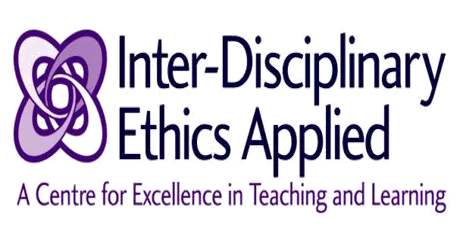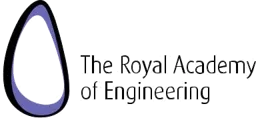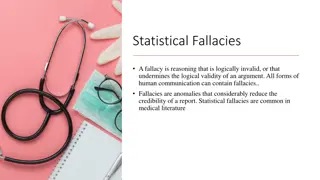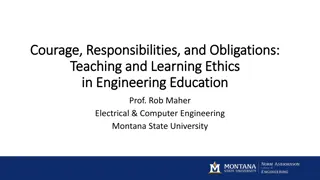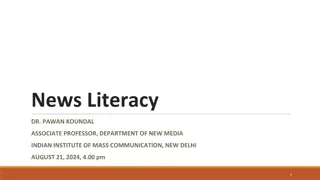Ethics in Engineering Practice: Striving for Objectivity
Professional engineers at Sudocom face ethical dilemmas when the CEO of Sealion Finance insists on minimal security measures for a new internal communications network. Despite concerns raised by engineers regarding data protection, the CEO's decision emphasizes trust in employees to handle sensitive information appropriately.
Download Presentation

Please find below an Image/Link to download the presentation.
The content on the website is provided AS IS for your information and personal use only. It may not be sold, licensed, or shared on other websites without obtaining consent from the author. Download presentation by click this link. If you encounter any issues during the download, it is possible that the publisher has removed the file from their server.
E N D
Presentation Transcript
Engineering ethics in practice: a guide for engineers Prof.Dr.Halit Hami Z Kafkas University Faculty of Engineering and Architecture Head, Department of Computer Engineering Kars, Turkey, 36100 hamioz@yahoo.com
I used the Engineering ethics in practice: a guide for engineers book written by The Royal Academy of Engineering for teaching as well as making the ppt presentations about the Engineering Ethics course Prof.Dr.Halit Hami Z Prof.Dr.Halit Hami OZ - Engineering Ethics Course 2
2.5 Being objective Professional engineers should present and review engineering evidence, theory and interpretation honestly, accurately and without bias Scenario Sudocom is a small company that provides communications consultancy to local businesses. They are hired by Sealion Finance, a financial services company with 40 staff, to develop an internal communications network for the sharing of non-sensitive information. There is already an intranet for storing and sharing the details of clients and staff, but the CEO of the company wants an easy and less formal way for staff to communicate, along the lines of social networking sites such as Facebook and Twitter. The aim is to foster team spirit as well as streamline discussion of non-confidential information. Prof.Dr.Halit Hami OZ - Engineering Ethics Course 3
2.5 Being objective When Sudocom discuss the work with the CEO of Sealion Finance, Jane Foster, it emerges that she wants minimal security on the new network, limited to a simple password access system. Sudocom inform her that for a system like this, their communication engineers would normally include various other security measures that would make it far more difficult for intruders to access the system. Jane Foster feels that because the system is only designed for non- confidential information, the supplementary measures will not be required. Moreover, the CEO wishes to avoid the effects of the extra security on the performance of the system Prof.Dr.Halit Hami OZ - Engineering Ethics Course 4
2.5 Being objective To allay Sudocom s professional concerns, Jane Foster assures Sudocom and their engineers that staff will be instructed to only use the new system for non-sensitive information. All confidential data will be shared using the old intranet, which incorporates much more substantial security measures Prof.Dr.Halit Hami OZ - Engineering Ethics Course 5
2.5 Being objective These discussions have left one of the communication engineers very concerned about Jane Foster s specification. The CEO appears to have placed a great deal of weight on the ability of her employees to refrain from discussing confidential information on the new communications network. In the communication engineer s experience of developing such systems it is hard to predict precisely how staff will use the network. The engineer feels that the CEO is taking greater risks than she might otherwise, because she is in a position of control. The engineer thinks that she is overestimating her ability to influence the communications of her staff, and that the new system should incorporate extra security measures to guard against the accidental discussion of confidential data. The engineer believes that if she were not the CEO of the company she would probably not judge the risks to be acceptable. Prof.Dr.Halit Hami OZ - Engineering Ethics Course 6
Dilemma You have been hired by the CEO of a company to develop an internal communications system for non-confidential information. You feel that it is important to include substantial safety features, but the CEO is confident over-confident, in your opinion in her ability to ensure that staff members restrict their communications to non-sensitive information. Prof.Dr.Halit Hami OZ - Engineering Ethics Course 7
What should you do? You could insist that external advice is sought on the issue, and include a security assessment in consultancy. This will ensure that the security ramifications of the new system are fully explored. You could forcefully offer your professional judgement that extra caution be taken, and convey your feeling that Jane Foster is overestimating her control over the situation. By committing your opinion to paper, you may persuade Jane Foster that further security measures are worthwhile. You could proceed as Jane Foster has asked, without any more discussion of the security of the system. You have expressed your opinion that extra security would be standard practice, and the final say should lie with the client Prof.Dr.Halit Hami OZ - Engineering Ethics Course 8
Discussion This situation requires you to make a judgement about the objectivity of a client, and to act on your judgement in a professional manner. To what extent are you responsible for the opinions and judgements of clients, colleagues and superiors, if those opinions and judgements are in your sphere of expertise? Prof.Dr.Halit Hami OZ - Engineering Ethics Course 9
Discussion The case study presents the CEO of Sealion Finance as overestimating her ability to affect the communication habits of her staff. Often, a person who has a high level of control over a process may estimate the risk level differently from someone who does not have that control. In everyday life this is familiar from the risk level you feel when driving a fast car compared to riding as a passenger. Jane Foster is presented as accepting a certain risk level because of her position of authority, a risk level that you feel to be too great. Prof.Dr.Halit Hami OZ - Engineering Ethics Course 10
Discussion If you do not accept that Jane Foster s objectivity is compromised, you may wish to take the third option and leave it up to her. Similarly, if you do not accept that your judgement is superior to hers then you will make the same decision. However, if you do think that her objectivity has been compromised then you must make a decision about what action to take. Prof.Dr.Halit Hami OZ - Engineering Ethics Course 11
Discussion You may feel that your professional obligation is limited to passing on your belief that her judgement is flawed, in which case you might choose the second option. You believe that her position of control is adversely affecting her assessment of the acceptable level of risk, and by explaining your view you may feel your professional obligation to be fulfilled. Prof.Dr.Halit Hami OZ - Engineering Ethics Course 12
Discussion However, the danger associated with insufficient security measures on the communications system could be severe, for both clients and the company, and you may feel that it would be unprofessional to omit the security features. This would be a strong and potentially unpopular route to take, but you may think that your experience and expert knowledge places you in a position which makes this course of action necessary. Prof.Dr.Halit Hami OZ - Engineering Ethics Course 13
Summary This situation demonstrates a conflict of opinion between the client and the supplier. You may not want to force your opinion too strongly, in case the relationship between yourself and the client is damaged, but likewise, it is important that your do not let your professional knowledge and opinion be sidelined. However, suggesting that the CEO of a company does not know her staff is unlikely to build the relationship. It is also important to consider the cost of this activity. If additional security measures would cost more to build and then implement for this system, your opinion that they are required could be viewed as you trying to maximise profit for Sudocom. If you decide to push for greater security, what steps could you take to avoid having your objectivity called into question? Prof.Dr.Halit Hami OZ - Engineering Ethics Course 14
2.6 Evaluating risks Professional engineers should identify and evaluate and, where possible, quantify risks Scenario SW Power is an energy company that has been given responsibility for the overhaul of a substation. The substation is old, and is long overdue for some serious maintenance and repair work. As is standard, another substation will take up the slack whilst the substation is taken off-line for the repair work, but an unexpected event such as an abnormal surge in power demand could cause a power-cut. Prof.Dr.Halit Hami OZ - Engineering Ethics Course 15
2.6 Evaluating risks The government regulator imposes fines on energy providers for any disruption to the power supply. An energy company undertaking work that significantly raises the risk of disruption will take out insurance against the possibility of the fine. The cost of the insurance (which is fixed by the level of the possible fine) will dictate the intensity of the maintenance work, e.g. whether weekend and night- time work is undertaken to reduce the time-period during which the power supply is at risk. Prof.Dr.Halit Hami OZ - Engineering Ethics Course 16
2.6 Evaluating risks As the work will involve a significant increase in the risk of a power-cut, the project manager for SW Power is required to go through this process. SW Power requires insurance to be taken out against any fines that they may incur, before the substation can be taken off-line and the overhaul completed. Prof.Dr.Halit Hami OZ - Engineering Ethics Course 17
2.6 Evaluating risks In assessing the disruption risk-level, the project manager realises that although the area serviced by the target substation is small, one of the key features is a medium-sized hospital, with 350 in-patient beds. According to the regulator s fining structure, no significance is given to the fact that this building is a hospital, and the fine incurred for a disruption in power supply to this institution is the same as for any residential building of its size. Furthermore, there are no regulations requiring a hospital to be treated any differently. On investigating, the project manager ascertains that the emergency generator for the hospital cannot be guaranteed to maintain power for more than 12 hours which is the period deemed by the hospital to be the probable maximum outage time of the mains supply. Prof.Dr.Halit Hami OZ - Engineering Ethics Course 18
2.6 Evaluating risks The level of the fine, and thus the cost of the insurance, is within acceptable limits to proceed with the overhaul of the substation. The cost of the insurance is also low enough to mitigate the need for intensive working practices Prof.Dr.Halit Hami OZ - Engineering Ethics Course 19
2.6 Evaluating risks However, the project manager is concerned. Without intensive working, the substation will be offline for well over the 12 hours during which the hospital s emergency generators can be expected to function. This will leave the hospital vulnerable to a black-out. Without an electricity supply, many of the crucial pieces of medical equipment in the hospital will be unable to function, leaving patients extremely vulnerable. Although this does not increase the financial risk to SW Electric, the project manager feels that the danger to the patients in the hospital is severe enough to necessitate intensive working, to complete the overhaul of the substation within 12 hours. The project manager would like to recommend to their manager that they agree to over-time payments, to allow overnight working to take place, but the project manager is unsure precisely how to proceed. Prof.Dr.Halit Hami OZ - Engineering Ethics Course 20
Dilemma A usually standard engineering decision has unexpectedly thrown up a difficult question. You feel that there is a powerful reason to perform intensive working on the overhaul of the substation, to protect the hospital from the risk of a damaging powercut. However, this decision is not motivated from a financial point of view. How are you going to communicate your judgement to your manager? Prof.Dr.Halit Hami OZ - Engineering Ethics Course 21
What should you do? You feel that the best thing is to frame your decision in terms of the responsibilities of the company to the local community. Whilst there is a financial cost to undertaking the intensive work, an obligation exists to protect the patients in the hospital. Although you are motivated by an ethical concern, you feel that the best way to present your decision is in direct commercial terms. You will seek to justify your decision by citing longer-term financial benefits of protecting the hospital. You worry that the ethical considerations involved in this decision place it outside your area of responsibility, and you will pass the decision on to your manager. You will state your opinion that the intensive working is justified, but you will refrain from making a definite judgement. Prof.Dr.Halit Hami OZ - Engineering Ethics Course 22
Discussion You feel strongly that your company has a responsibility to safeguard the hospital, even with the increased costs and the lack of legal requirement. However, the company usually relies upon legislation, standards and regulations to ensure that it meets its obligations. The problem in this case is that there is an important concern the special requirements of a hospital that is not reflected in those regulations Prof.Dr.Halit Hami OZ - Engineering Ethics Course 23
Discussion You want to emphasise the significance of the ethical responsibilities of the company in this case, but you are concerned how this may be received. There are two possible effects of this that might concern you: a) your recommendation may not be accepted, b) it might affect your reputation within the company. You certainly do not want to be seen as someone who will waste the company s money on spurious ethical concerns. Prof.Dr.Halit Hami OZ - Engineering Ethics Course 24
Discussion These kinds of considerations might persuade you to frame your decision in terms of standard commercial considerations. You might cite the longer-term financial costs associated with negative publicity, or with increased governmental oversight and intervention, caused by any dangerous power-cut to the hospital. There is a chance that this kind of message will meet with more success with your manager. Prof.Dr.Halit Hami OZ - Engineering Ethics Course 25
Discussion The downside of using a financial message is that it does not accurately reflect your judgement. You might consider it reasonably dishonest, perhaps even manipulative, to disguise the essentially ethical nature of your concerns. It might also be uncharitable to assume that senior managers in the company would not share your feeling that the hospital deserves protection. Just as you have felt a certain obligation, so those managers steering the company might easily be aware of the same kind of obligation. Prof.Dr.Halit Hami OZ - Engineering Ethics Course 26
Discussion Even if the senior managers of the company are not receptive to a message based on corporate responsibility, you may feel a duty to help in changing that atmosphere from within. By concealing a legitimate ethical concern, you could be promoting the kind of corporate ethos that excludes the kinds of wider social obligations that the public are increasingly expecting of large companies. Prof.Dr.Halit Hami OZ - Engineering Ethics Course 27
Discussion Of course, as a member of a large organisation you only have a limited effect upon, and limited responsibility for, the values and reputation of that organisation. You might feel that your personal responsibility does not extend to making the kind of ethical judgement that this situation involves. This might lead you to pass the decision on to your manager. Prof.Dr.Halit Hami OZ - Engineering Ethics Course 28
Discussion The downside of passing the decision along is that you may be seen as avoiding your responsibilities. In any normal circumstance it is your job to make this decision, and the presence of wider social obligations is usual in an engineering context. Professional codes of conduct, including the Engineering Profession s Statement of Ethical Principles, make it clear that you are expected to make competent decisions regarding the impact of engineering activities on society. If you feel strongly about the intensive working, maybe you should have confidence in your judgement. Prof.Dr.Halit Hami OZ - Engineering Ethics Course 29
Summary Within this situation, it is clear that you need to make SW Power aware of the risks to the hospital. Ignoring the situation could result in causing harm to people within the hospital, as well as harm to SW Power s reputation. As part of your considerations, you must decide if the organisation will be driven by ethical or commercial arguments, or a combination of the both. It may be useful to get support from your manager in making this decision, but passing the responsibility for the decision solely onto them would appear to demonstrate a lack of judgement and responsibility on your part. You may also wish to try and liaise with the hospital, to make them aware of the potential risk, in case there are other contingency plans they can put in place. Prof.Dr.Halit Hami OZ - Engineering Ethics Course 30
Other ethical considerations involved in this case Significant elements of this case are relevant to your duty to respect life, lawand the public good: both the requirement to hold paramount the healthand safety of others, and the requirement to uphold reputation of engineering (which could be damaged if it appeared that you had neglected the risk to the hospital). The way in which you present your concerns to your manager also raises issues of responsible leadership. If your worry is an ethical one, would it be responsible to present it in a different light, or even pass the decision on to someone else to take? Prof.Dr.Halit Hami OZ - Engineering Ethics Course 31
Wider applications imagine you are hired to provide your professional judgement about the design of a cutting-edge electronic automotive component, but in doing so you may be in danger of disclosing confidential information from a previous client in the same industry. Prof.Dr.Halit Hami OZ - Engineering Ethics Course 32
Wider applications As a professional engineer, you have an obligation to provide the most accurate, unbiased and objective information at your disposal. In the normal course of events this is straightforward, but what if you have information that is relevant to the client, but is confidential? In such a situation it is harder to determine what your obligation to objectivity requires. You will have to judge how best to balance the needs of the current and the previous clients, without either compromising your ability to provide professional advice or releasing confidential information. Prof.Dr.Halit Hami OZ - Engineering Ethics Course 33
Wider applications Imagine you are asked by your employer whether they should invest in software produced by a company that you personally dislike, because of the unpleasant way they treated you as a employee earlier in your career. Prof.Dr.Halit Hami OZ - Engineering Ethics Course 34
Wider applications One factor that can make it hard to remain objective can be the emotions and feelings that are present in working life, just as much as in your personal life. Professional relationships can cause feelings that affect your judgement, and whilst many of these will improve your ability to provide accurate engineering information, they can sometimes be an obstacle. If you have personal feelings, whether positive or negative, that are not directly related to the engineering qualities of a product, process, individual or organisation, you will have to think carefully to ensure that the professional advice you provide is not biased or prejudiced. Prof.Dr.Halit Hami OZ - Engineering Ethics Course 35






